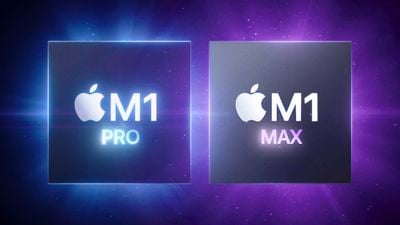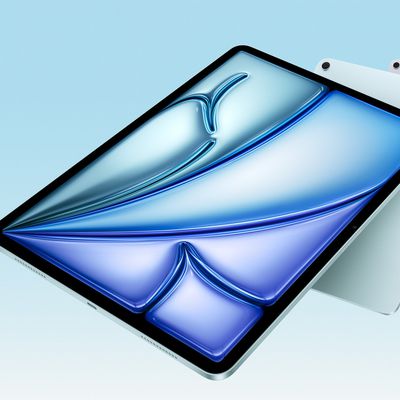Future Apple Silicon Macs Will Reportedly Use 3nm Chips With Up to 40 Cores
The Information's Wayne Ma today shared alleged details about future Apple silicon chips that will succeed the first-generation M1, M1 Pro, and M1 Max chips, which are manufactured based on Apple chipmaking partner TSMC's 5nm process.

The report claims that Apple and TSMC plan to manufacture second-generation Apple silicon chips using an enhanced version of TSMC's 5nm process, and the chips will apparently contain two dies, which can allow for more cores. These chips will likely be used in the next MacBook Pro models and other Mac desktops, the report says.
Apple is planning a "much bigger leap" with its third-generation chips, some of which will be manufactured with TSMC's 3nm process and have up to four dies, which the report says could translate into the chips having up to 40 compute cores. For comparison, the M1 chip has an 8-core CPU and the M1 Pro and M1 Max chips have 10-core CPUs, while Apple's high-end Mac Pro tower can be configured with up to a 28-core Intel Xeon W processor.
The report cites sources who expect TSMC to be able to reliably manufacture 3nm chips by 2023 for use in both Macs and iPhones. The third-generation chips are codenamed Ibiza, Lobos, and Palma, according to the report, and it's likely they will debut in higher-end Macs first, such as future 14-inch and 16-inch MacBook Pro models. A less powerful third-generation chip is also said to be planned for a future MacBook Air.
Meanwhile, the report says the next Mac Pro will use a variant of the M1 Max chip with at least two dies, as part of the first generation of Apple silicon chips.
Popular Stories
Apple plans to release an iPhone 17e and an iPad Air with an M4 chip "in the coming weeks," according to the latest word from Bloomberg's Mark Gurman.
"Apple retail employees say that inventory of the iPhone 16e has basically dried out and the iPad Air is seeing shortages as well," said Gurman. "I've been expecting new versions of both (iPhone 17e and M4 iPad Air) in the coming weeks."...
Apple plans to launch a rebranded "Sales Coach" app on the iPhone and iPad later this month, according to a source familiar with the matter.
"Sales Coach" will arrive as an update to Apple's existing "SEED" app, and it will continue to provide sales tips and training resources to Apple Store and Apple Authorized Reseller employees around the world. For example, there are articles and videos...
While the iPhone 18 Pro and iPhone 18 Pro Max are still seven months away, an analyst has revealed five new features the devices will allegedly have.
Rumored color options for the iPhone 18 Pro models
In a research note with investment firm GF Securities on Thursday, analyst Jeff Pu outlined the following upgrades for the iPhone 18 Pro models:
Smaller Dynamic Island: It has been rumored...
Apple has a long list of new products rumored for 2026, including a series of home products that will see the company establishing more of a presence in the smart home space. Robots are on the horizon for 2027, but the 2026 releases will be a little tamer.
HomePod mini
We're expecting a new HomePod mini 2 to launch at any time. Apple isn't going to update the device's design, but we could...
Apple is planning to launch new MacBook Pro models as soon as early March, but if you can, this is one generation you should skip because there's something much better in the works.
We're waiting on 14-inch and 16-inch MacBook Pro models with M5 Pro and M5 Max chips, with few changes other than the processor upgrade. There won't be any tweaks to the design or the display, but later this...





















